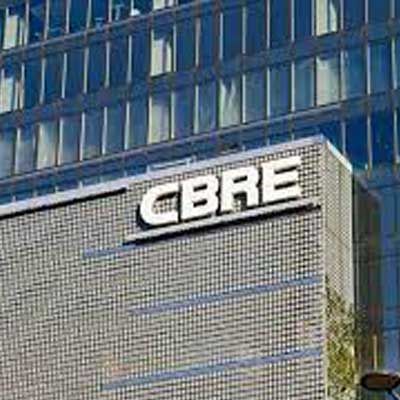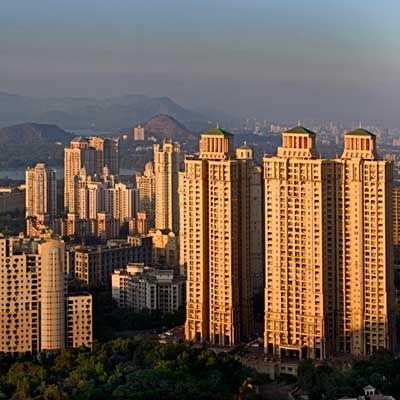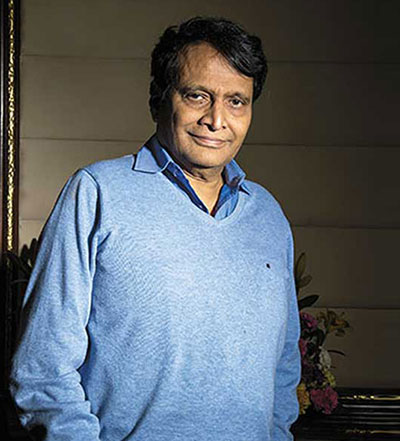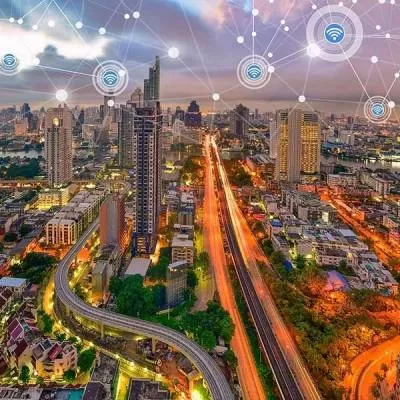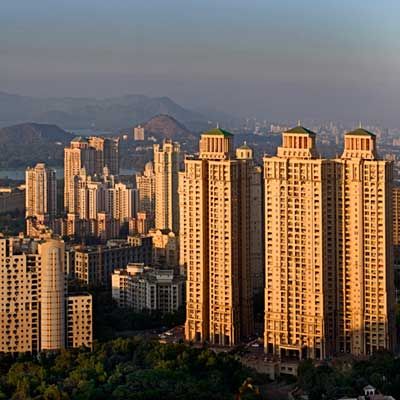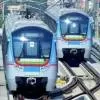- Home
- Infrastructure Urban
- SMART CITIES
- Smart Cities Why and How?

Smart Cities Why and How?
India is the seventh largest country by geographical area, and the second most populous with over 1.2 billion people. It is home to 17.5 per cent of the world´s population, and 53 urban agglomerations with a population of over a million as of 2011, as against 35 million in 2001. About 43 per cent of India´s urban population lives in these cities. According to a McKinsey Global Institute (MGI) report, India´s urban population is projected to increase from 340 million in 2008 to 590 million by 2030.
Problem and solution
This urbanisation trend has been creating tremendous pressure on the infrastructure of existing cities, which were not planned to handle the current population in the first place. Consequent to rapid urbanisation and poor planning are poor roads, lack of drainage systems, erratic power and water supply, law and order issues, environmental concerns, and safety and security issues. These are debilitating factors for the economic growth of a developing nation such as India.
Smart cities are a long-term solution to such urban development problems. As the name suggests, smart cities rely on ´quick-witted intelligence´ attained by the employment of information technology along with development initiatives including roads, bridges, power plants, CCTV coverage, green buildings and pollution sensors. The hallmark of a smart city is sustainability. Above all, in a democracy such as India, strong political will is essential to conceptualise and implement Smart Cities.
Basic smart city concept
- All-encompassing and all-round development.
- Equal and inclusive growth for all citizens.
- Environmentally and economically sustainable.
- Flexible and scalable in implementation.
- Legal and statutory framework should be progressive enough to uphold smart city concepts.
Whether it is to create greenfield smart cities for the future or redevelop existing cities, planning is the key. It is important that all disparate components ´talk´ to the planners and are relatable. It is important for data to be available for this, and analyses to be undertaken.
IT firms such as Cisco, IBM, Accenture, Oracle, AT&T, Schneider, Honeywell, ABB and many more have advanced technologies and processes that can contribute towards the development of smart cities. Their services vary from creating a process to integrating all civic facilities, creating a municipal IT network, and providing smart hardware to providing pure services for pollution monitoring, waste management, and traffic planning and management.
Measurement of success
- A city is a dynamic living environment that is ever-changing socially, politically and economically. It is important to measure the success of sustainable initiatives to ensure effectiveness.
- Measurement should be tailored to a city´s smart city goal. An industrial hub, for instance, would have distinct goals from a city with services as a primary economic activity.
- Measurement should be holistic and should be able to correlate various factors, and their impact on one another. Traffic congestion in downtown areas may be correlated to a rise in pollution, for example, which may be correlated to the availability of health services.
- Benchmarking against set goals and peer cities to reset measurement criterion.
In the context of benchmarking, one of the best global examples of a smart city is that of Amsterdam. The Amsterdam Smart City began in 2009, and today involves over 70 different partners. The idea of the Amsterdam Smart City, is to go from traditional knowledge-silo thinking to a holistic information community, where synergies are created through co-operation. It lays stress on the importance of the smart city as an inclusive process, where the strength lies in both the quality and quantity of the information shared.
To share your views on this article, write in at feedback@constructionworld.in
GURJOT BHATIA, Managing Director-Project Management in India, CBRE South Asia Pvt Ltd, sees smart cities as the long-term solution to urban development woes. India is the seventh largest country by geographical area, and the second most populous with over 1.2 billion people. It is home to 17.5 per cent of the world´s population, and 53 urban agglomerations with a population of over a million as of 2011, as against 35 million in 2001. About 43 per cent of India´s urban population lives in these cities. According to a McKinsey Global Institute (MGI) report, India´s urban population is projected to increase from 340 million in 2008 to 590 million by 2030. Problem and solution This urbanisation trend has been creating tremendous pressure on the infrastructure of existing cities, which were not planned to handle the current population in the first place. Consequent to rapid urbanisation and poor planning are poor roads, lack of drainage systems, erratic power and water supply, law and order issues, environmental concerns, and safety and security issues. These are debilitating factors for the economic growth of a developing nation such as India. Smart cities are a long-term solution to such urban development problems. As the name suggests, smart cities rely on ´quick-witted intelligence´ attained by the employment of information technology along with development initiatives including roads, bridges, power plants, CCTV coverage, green buildings and pollution sensors. The hallmark of a smart city is sustainability. Above all, in a democracy such as India, strong political will is essential to conceptualise and implement Smart Cities. Basic smart city concept All-encompassing and all-round development. Equal and inclusive growth for all citizens. Environmentally and economically sustainable. Flexible and scalable in implementation. Legal and statutory framework should be progressive enough to uphold smart city concepts. Whether it is to create greenfield smart cities for the future or redevelop existing cities, planning is the key. It is important that all disparate components ´talk´ to the planners and are relatable. It is important for data to be available for this, and analyses to be undertaken. IT firms such as Cisco, IBM, Accenture, Oracle, AT&T, Schneider, Honeywell, ABB and many more have advanced technologies and processes that can contribute towards the development of smart cities. Their services vary from creating a process to integrating all civic facilities, creating a municipal IT network, and providing smart hardware to providing pure services for pollution monitoring, waste management, and traffic planning and management. Measurement of success A city is a dynamic living environment that is ever-changing socially, politically and economically. It is important to measure the success of sustainable initiatives to ensure effectiveness. Measurement should be tailored to a city´s smart city goal. An industrial hub, for instance, would have distinct goals from a city with services as a primary economic activity. Measurement should be holistic and should be able to correlate various factors, and their impact on one another. Traffic congestion in downtown areas may be correlated to a rise in pollution, for example, which may be correlated to the availability of health services. Benchmarking against set goals and peer cities to reset measurement criterion. In the context of benchmarking, one of the best global examples of a smart city is that of Amsterdam. The Amsterdam Smart City began in 2009, and today involves over 70 different partners. The idea of the Amsterdam Smart City, is to go from traditional knowledge-silo thinking to a holistic information community, where synergies are created through co-operation. It lays stress on the importance of the smart city as an inclusive process, where the strength lies in both the quality and quantity of the information shared. To share your views on this article, write in at feedback@constructionworld.in


